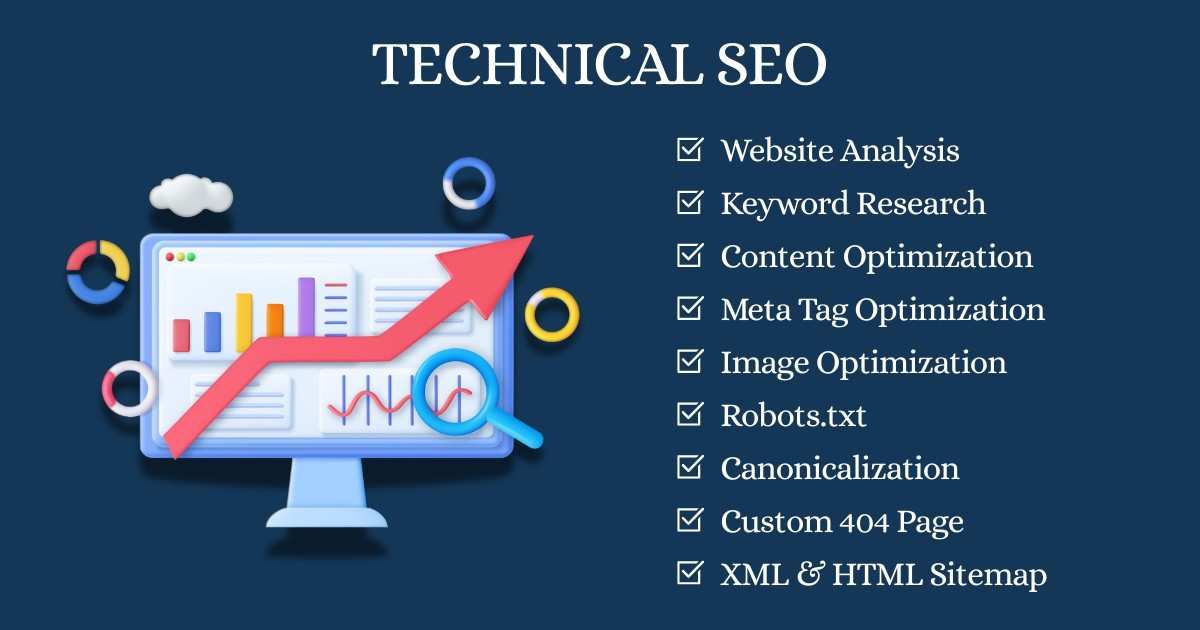


Learn what technical SEO is, why it matters for rankings, and how to optimize your site structure, speed, and crawlability for search success.
Most conversations about SEO focus on keywords, backlinks, and content marketing. While these are essential, there’s another side of SEO that often gets overlooked but is equally important: technical SEO.
Technical SEO ensures your website is structured and optimized so search engines can easily crawl, index, and rank your content. Without it, even the best-written articles or strongest backlinks won’t deliver the rankings you expect.
This article explains what technical SEO is, why it matters, and the steps you can take to improve your site’s technical health for better search performance.
Technical SEO refers to optimizing a website’s infrastructure to help search engines understand, crawl, and index its content effectively. It goes beyond content and keywords to focus on how a site is built and functions.
Core components of technical SEO include:
Fast load times.
Mobile-friendliness.
Secure browsing with HTTPS.
Clear site structure and navigation.
Crawlable and indexable pages.
Schema markup for better search understanding.
In short, it provides the foundation on which all other SEO strategies rely.
Search engines want to provide the best user experience possible. If your site is slow, insecure, or difficult to crawl, search engines will penalize it in rankings.
Here are some key reasons technical SEO is crucial:
Crawlability and Indexing: Ensures search engines can access and understand your pages.
Faster Load Times: Page speed directly impacts rankings and user satisfaction.
Mobile-First Indexing: With mobile usage dominating, your mobile site matters most.
Lower Bounce Rates: Smooth navigation keeps visitors engaged.
Improved Rankings: A technically sound site has a better chance to rank well.
Think of it this way: content and backlinks attract attention, but technical SEO opens the door for search engines to actually notice and reward your site.
Page speed is critical. Slow sites drive users away and reduce rankings.
Quick fixes:
Compress images with modern formats like WebP.
Use caching and CDNs.
Minify CSS, JavaScript, and HTML.
Google prioritizes mobile versions of websites.
Best practices:
Use responsive design.
Keep navigation simple for touch screens.
Test with Google’s Mobile-Friendly Tool.
Google favors HTTPS websites for user trust.
Key actions:
Install an SSL certificate.
Ensure your robots.txt and sitemap are properly set.
If bots can’t crawl your site, your pages won’t rank.
How to optimize:
Submit XML sitemaps.
Fix broken links.
Use canonical tags to prevent duplicate content.
Schema markup provides search engines with context, enabling rich results like FAQs, ratings, and product details.
To improve technical SEO, you first need to identify issues. A technical SEO audit highlights problem areas.
Steps to run an audit:
Check crawl errors in Google Search Console.
Analyze speed with PageSpeed Insights.
Look for broken links or duplicate content.
Review mobile usability.
Confirm your XML sitemap is clean.
Regular audits keep your site optimized and ahead of competitors.
Even well-built sites make errors that hurt rankings. Avoid these common issues:
Forgetting to use HTTPS.
Blocking crawlers with robots.txt.
Letting site speed lag due to heavy scripts.
Ignoring mobile optimization.
Skipping XML sitemaps or structured data.
Technical SEO can be complex, particularly for large or e-commerce sites. While many improvements are straightforward, scaling them effectively requires expertise. Agencies like mediaupshift stress that a strong technical foundation supports not only higher rankings but also better user engagement and long-term digital growth.
Technical SEO is the backbone of any successful SEO strategy. Without it, even the best content and strongest backlink profile can underperform. By focusing on site speed, mobile optimization, security, crawlability, and structured data, you ensure your site is both user-friendly and search-engine-friendly.
SEO isn’t just about words—it’s about creating a seamless experience for both users and bots. Prioritizing technical SEO gives you the foundation needed to climb rankings, attract more traffic, and achieve lasting online success.
